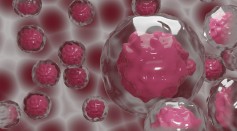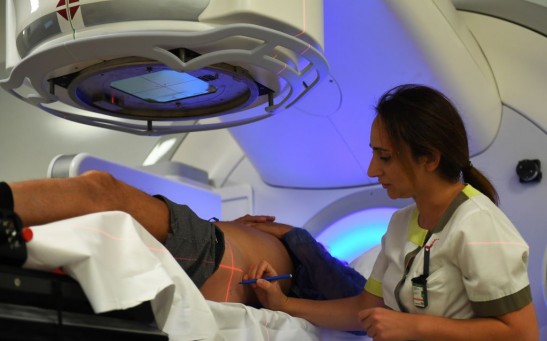chemotherapy
Fish-Shaped Microbots Guided With Magnets May Be Used for Drug Delivery to Cancer Cells
Irritable Bowel Syndrome: 39-Year-Old Woman With Terminal Illness Misdiagnosed Due to IBS and Colon Cancer's Similar Symptoms
Caterpillar Fungus May Help Kill Tumor Cells; Clinical Trial Results Reveal Presence of Molecule That Can Be Used as Anti-Cancer Drug
Colorectal Cancer, Melanoma May Potentially Be Treated Through the Use of This Novel Nanotechnology
Magnetic Helmet Developed to Shrink Aggressive Brain Tumor; 1st Time to Test on 53-Year-Old Patient
Junk RNA From Evolutionary Pathogens Can Induce Blood Regeneration After Chemotherapy Treatment
Ovarian Cancer Treatment: Surgery Must Precede Chemotherapy for Patients with Aggressive Form of the Disease
Greyhound Dog with Lymphoma Receives New Vaccine That Has Anti-Cancer Effects in Various Tumors
Cancerous Brain Tumor: How Possible is Prevention of Further Growth?

Cancer Cells Also Hibernate Like Bears to Survive Chemotherapy
New Way of Treating Cancer Uses Tiny Bubbles
Novel Drug Combination May Put A Stop To Cancer Cells
Researchers Discover New Potential Target in Brain Cancer
Supercomputers End Traditional Development Process to Discover New Chemotherapy Drugs
Most Popular

How Technology Is Changing the Real Estate Industry?

Study Reveals High Turnover in Scientific Research Careers: What This Means for Future Scientists

Nikolay Karpenko Biography, Photo, Career, Accomplishments

How a Plant-Based Diet Can Protect Against Breast Cancer: Insights from Nutrition Research






